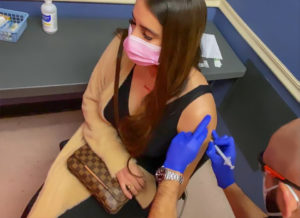 The North Carolina Department of Health and Human Services (NCDHHS) has reported two cases of mpox in the last six weeks, marking the first occurrences since April 2023. Additionally, the mpox virus was found in one of 12 monitored wastewater sites across different counties, indicating a wider spread in the state. NCDHHS is collaborating with local health entities to raise awareness, promote testing, and enhance vaccine accessibility, especially for high-risk individuals. Resources include the Mpox Equity Report, Communications Toolkit, and the Take Pride Now campaign.
The North Carolina Department of Health and Human Services (NCDHHS) has reported two cases of mpox in the last six weeks, marking the first occurrences since April 2023. Additionally, the mpox virus was found in one of 12 monitored wastewater sites across different counties, indicating a wider spread in the state. NCDHHS is collaborating with local health entities to raise awareness, promote testing, and enhance vaccine accessibility, especially for high-risk individuals. Resources include the Mpox Equity Report, Communications Toolkit, and the Take Pride Now campaign.
“If you are at higher risk for mpox and haven’t yet gotten the vaccine, now is a good time to do so,” said NC State Epidemiologist Dr. Zack Moore in a press release. “Numbers of cases have been low recently thanks to vaccinations and engagement of partners in the LGBTQ+ community, but this is a reminder that mpox is still with us.”
Mpox symptoms resemble the flu, such as fever, chills, and muscle aches, followed by a rash. The rash’s appearance can vary in timing. The disease is contagious until all sores are healed. It spreads through direct contact, body fluids, or respiratory secretions, often during intimate interactions. The current outbreak predominantly affects men who have sex with men, with over half of the cases involving individuals with HIV.
Those suspecting they have mpox or have been in contact with an infected person should consult a healthcare provider. It’s also advisable to get tested for other STDs, including HIV and syphilis, which are increasing in North Carolina.
For prevention, NCDHHS and the CDC recommend five specific steps:
- Get vaccinated. Vaccines, including the JYNNEOS vaccine, are free and available, regardless of immigration status. Vaccination can protect against mpox infection or reduce disease severity if infection does occur. NCDHHS recommends vaccination for —
- Anyone who has or may have multiple or anonymous sex partners; or
- Anyone whose sex partners are eligible per the criteria above; or
- People who know or suspect they have been exposed to mpox in the last 14 days; or
- Anyone else who considers themselves to be at risk for mpox through sex or other intimate contact.
- Use the mpox vaccine locator to find nearby healthcare locations in your area that provide mpox vaccinations.
- Take steps to lower your risk during sex or at social gatherings, like using a condom correctly every time you have sex.
- Avoid close contact with people who have a rash that looks like mpox.
- Avoid contact with objects and materials a person with mpox has used.
- Wash your hands often.


